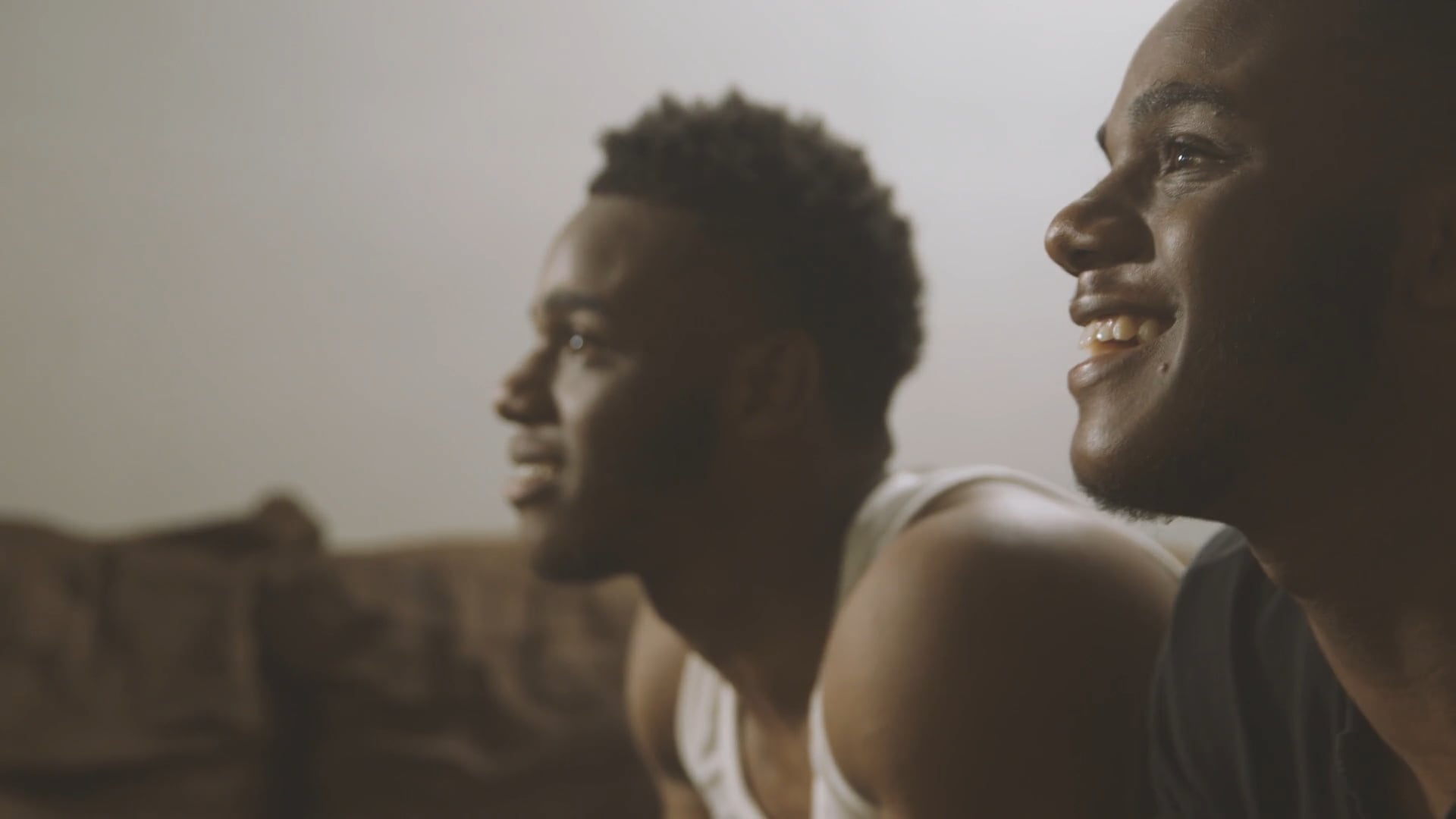Chapter 2 of West Baltimore: Rebuilding Mode
A few good men
Meet Jordan Spence—wideout, outlier. He plans on beating the West Baltimore odds. Here’s how.
Maybe it’s because his mother warned him not to brag.
That’s why if you ask Jordan Spence, he probably won’t tell you he has skills. But Jordan can out-X-box any virtual Lebron James wannabe. He can outrun almost any Maryland prep track star. And he can out-anything his twin brother Justin (okay, he will brag about that one).
No matter the topic, Jordan Spence, an 18-year old college freshman from West Baltimore, will not comfortably and enthusiastically talk about himself—except when it comes to his family’s future. “Not having a father in my life, I have to support my mom,” he says. “She’s a single mother, so I have to go to college. That’s my main goal. I live it and breathe it right now. That’s what I’m working on.”

Jordan (far right) lives with his twin brother Justin, his sister and his mother.
When asked to describe his father, all Jordan Spence has to draw on are occasional unplanned encounters. “I know him, but he really doesn’t do anything,” he says. “I probably see him, like, three times a year at most. And that’s when I see him on the street.” In West Baltimore, Jordan’s experience—or lack of experience—with his father is the rule rather than the exception. Here, almost 72% of households with children are led by a single mother. That’s three times the national average.
Jordan is quick to tell anyone how much he admires his mom, and because the odds are stacked so heavily against her, her hero credentials are well-earned. Studies show in households where a father figure is not present, children are twice as likely to end up in jail and four times more likely to need help for emotional or behavioral problems. It’s also reported 71% of all high school dropouts and 90% of all homeless and runaway children come from fatherless homes.
Obviously not every one of the almost 20-million U.S. children raised by a single mother is at-risk. But in West Baltimore, where Jeff Thompson has seen not just fathers, but positive male role models of any kind disappear, there always seems to be someone or something ready to fill the community’s male-vacuum. “Here, for 13- to 18-year-old boys there’s a lack of men to help them navigate through life,” he says. ‘And the guys that will take them in are the guys on the corner, the people pulling at them to play this other role that leads to destruction. That’s why we want to bring something that says ‘what does it look like to be the man God has called you to be?’”

“I pray for the kids,” Sean says. “I pray for their hearts, I pray for their souls, that they get an opportunity to hear about Jesus.”
Once or twice a week, his living room smells like cold pizza and teenage boy sweat, and to 10:12 Sports football coach Sean Goodrich, that aroma has become the welcome, weekly fragrance of home. Sean moved to West Baltimore in 2012 because he wanted to live in a community where there were opportunities to share Christ and make disciples. That’s why two years ago, when Jeff first approached Sean at church and asked if he would coach a football team, Sean jumped at the offer. “I, without hesitation said, ‘yes,’” he remembers. “In this neighborhood, there’s an epidemic of fatherlessness. And so, coaching somebody who doesn’t have a father figure in their life—to even talk about what it means to be a man—I feel like the Lord called me to it.”

“I like practice more than games,” says Sean. “There’s opportunities to teach.”
To Sean, it seems everything about coaching a kid’s football team in West Baltimore starts and ends in his car. “Sometimes, it feels like I’m a taxi driver,” he laughs. Someone has to get players from home to practice and then back home again, and in a community where walking from one block to the next is not always safe, Sean has had to learn exactly how many teenagers he can fit in his minivan (the answer: more than you think). “The conversation’s different,” Sean says. “When you’re driving, there’s more things to talk about than just football.”

That’s never more evident than when Jordan is in the car. While Sean loves all his players, his relationship with Jordan runs deeper than most. Jordan is almost always the one sitting in the passenger seat of Sean’s van, and he’s almost always driving the in-car conversation. “Jordan likes to go deep,” Sean says. “He doesn’t hesitate to ask about life and death stuff. I love that about him.”
Jordan loves Sean too. Ask him what is special about his coach and he says, “I know that he really cares about me. And that makes me really care about him.”
To hear Jordan describe it, it sounds so simple. But in communities like West Baltimore, almost nothing is as simple as it sounds.


